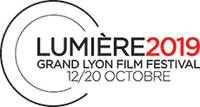André Cayatte
"Social courage" (André Bazin)
Posted on september 6, 2019
While we await September 12th, when the detailed program of the Lumière festival will be revealed, we take a closer look at André Cayatte, whose films will be screened in new prints thanks to Gaumont for Lumière 2019.
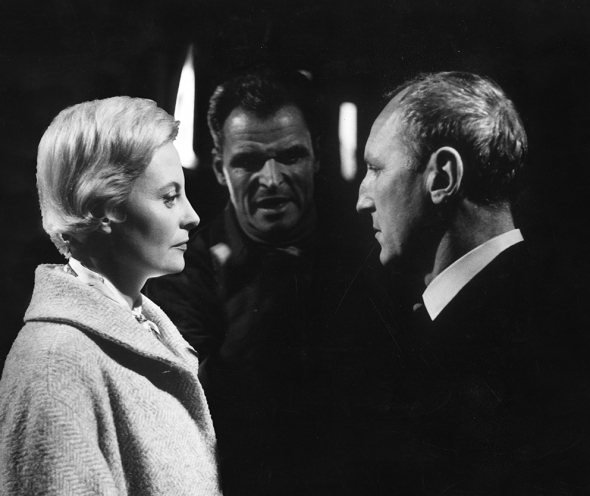 André Cayatte with Bourvil and Michèle Morgan in 1958 on the set of The Mirror Has Two Faces.
André Cayatte with Bourvil and Michèle Morgan in 1958 on the set of The Mirror Has Two Faces.
A retrospective organized in partnership with Gaumont
and Pathé, TF1 Studio and Splendor
He has been called the "terrible old man" of French cinema: "I am a selfish man, in order not to suffer, I would like a society of happy people!” exclaimed André Cayatte, who fell into directing almost by chance while leading a full-fledged career as a lawyer at the Court of Paris. His background would generate the fervor to defend his causes, often going against the current thinking of the era, which would, for a long period, reduce Cayatte’s reputation to a director of merely "social theory” works.
André Cayatte was nevertheless a man of passionate and committed cinema, leading a war against the censorship and polite society of the fifties and sixties. He won a Golden Lion in Venice (for The Crossing of the Rhine in 1960), a Golden Bear in Berlin (Justice is Done in 1950), the Jury Prize in Cannes (We Are All Murderers in 1952) and numerous other awards. His films were also popular with the working-class.
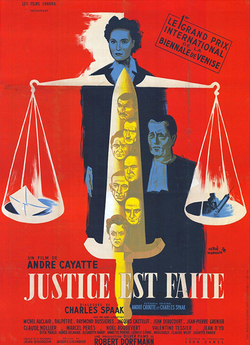 |
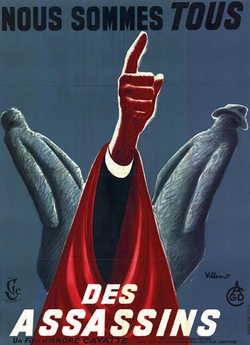 |
|
| Justice is Done (1950) | We Are All Murderers (1952) |
The Cayatte revival will pay fitting homage to his screenwriters, including Charles Spaak, while also revisiting a troupe of actors including Paul Frankeur, Bernard Blier, Mouloudji, Noël Roquevert or the little-known Antoine Balpêtré...
In October, the Lumière festival will offer a journey through his work, screening mostly new prints of a wide selection of films.
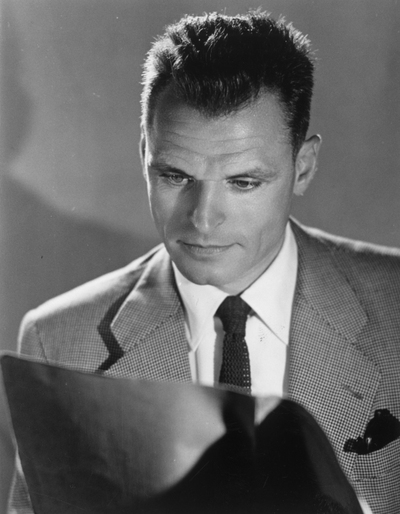 Photographie d'André Cayatte par Sam Levin pour Unifrance, 1954
Photographie d'André Cayatte par Sam Levin pour Unifrance, 1954
Films of the retrospective :
Twisted Mistress (La Fausse maîtresse, 1942, 1h25)
Pierre and Jean (Pierre et Jean, 1943, 1h13)
The Last Penny (Le Dernier sou, 1943, 1h30)
The Lovers of Verona (Les Amants de Vérone, 1949, 1h43)
Return to Life (Retour à la vie, 1949, 2h)
Justice is Done (Justice est faite, 1950, 1h47)
We Are All Murderers (Nous sommes tous des assassins, 1952)
Before the Deluge (Avant le déluge, 1954, 2h20)
Black Dossier (Le Dossier noir, 1955, 1h55)
An Eye for an Eye (Œil pour œil, 1957, 1h54)
The Mirror Has Two Faces (Le Miroir à deux faces, 1958, 1h36)
The Crossing of the Rhine (Le Passage du Rhin, 1960, 2h05)
A Trap for Cinderella (Piège pour Cendrillon, 1965, 1h55)
Risky Business (Les Risques du métier, 1967, 1h45)
To Die of Love (Mourir d'aimer, 1971, 1h53)
The Lumière festival program and ticketing will
be available on September 12th.

